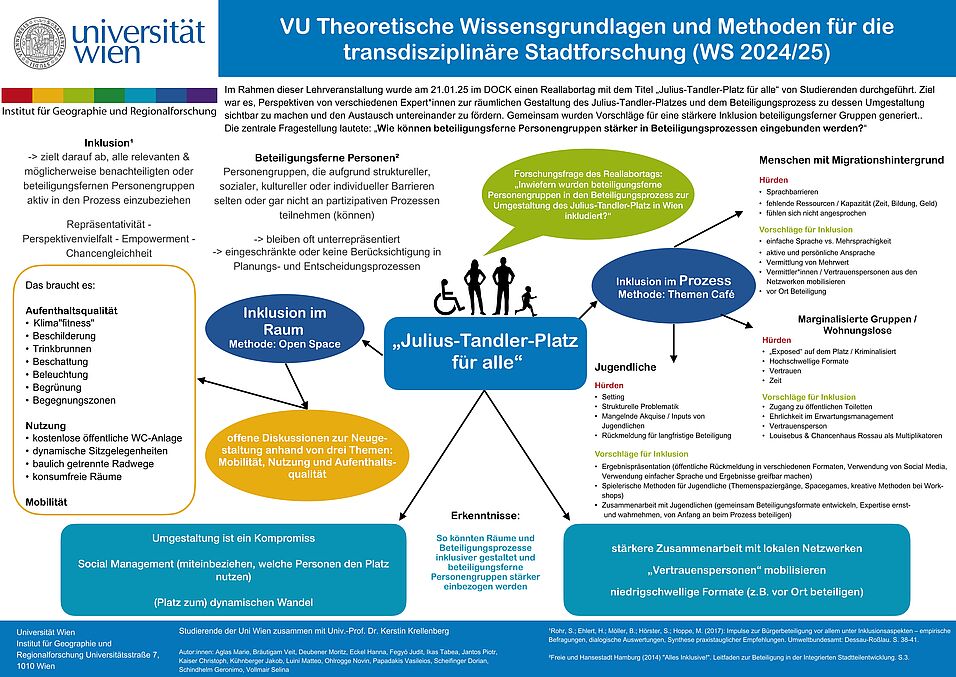Im Verlauf des Semesters konzipierten die Studierenden zu diesem Thema ein Reallabor und führten am 25.01.2025 einen Reallabortag mit folgender Fragestellung durch:
Inwiefern wurden beteiligungsferne Personengruppen in den Beteiligungsprozess zur Umgestaltung des Julius-Tandler-Platz in Wien inkludiert?
Ziel des Reallabortags im Dock Wien war es, die entwickelte Fragestellung mit unterschiedlichen Akteuren aus der städtischen Praxis im Rahmen eines Workshops zu diskutieren. Dazu gehörten Vertreter*innen der Sucht- und Drogenkoordination der Stadt, des Jugendzentrums Juvivo.09, der Kinderuni sowie Vertreter*innen aus Politik und Verwaltung. Da der Austausch zwischen den Akteur*innen im Fokus stand, wendeten die Studierenden partizipative Methoden wie „World-Café“ und „Open Space“ an und konnten so, sowie durch zusätzliche fachliche Inputs und eine exzellente Moderation, einen Raum für fruchtbare Diskussionen schaffen. Die Teilnehmer*innen des Reallabortags tauschten sich anhand verschiedener Themen über Schwierigkeiten aber auch Chancen zur Inklusion beteiligungsfernen Personengruppen in Stadtentwicklungsprozessen aus.
Die Ergebnisse des Reallabortags sind auf dem Poster rechts zusammengefasst.




